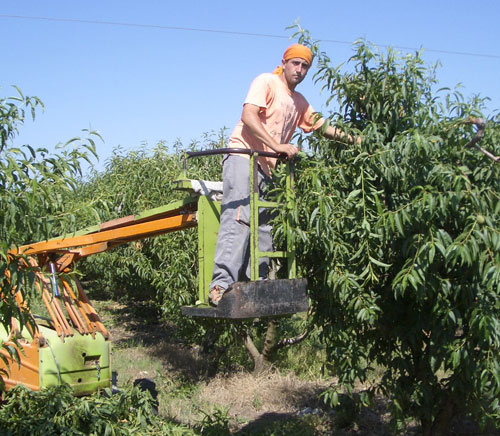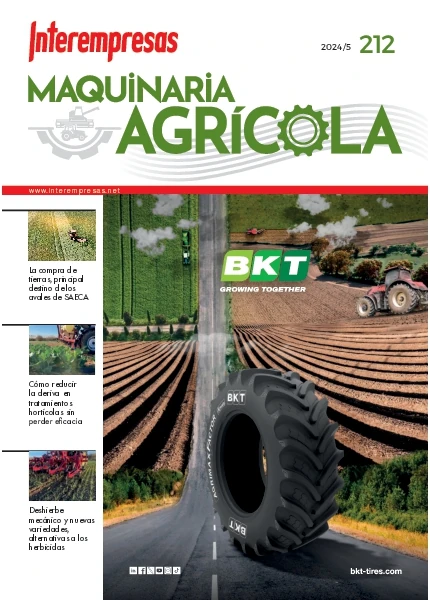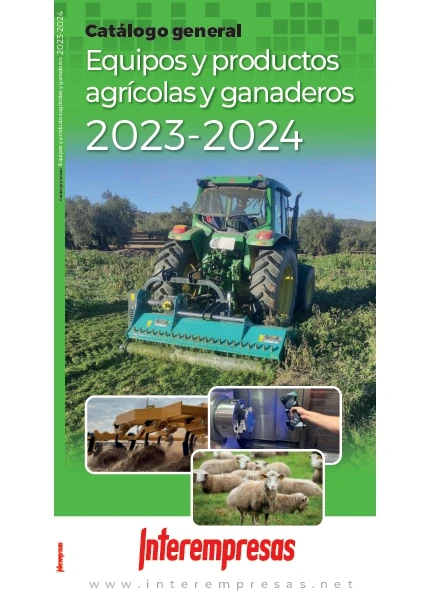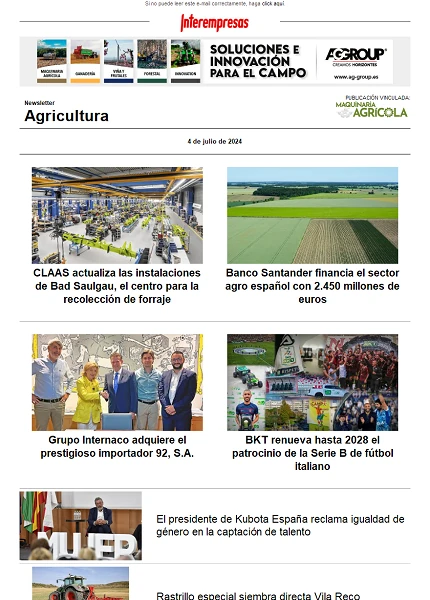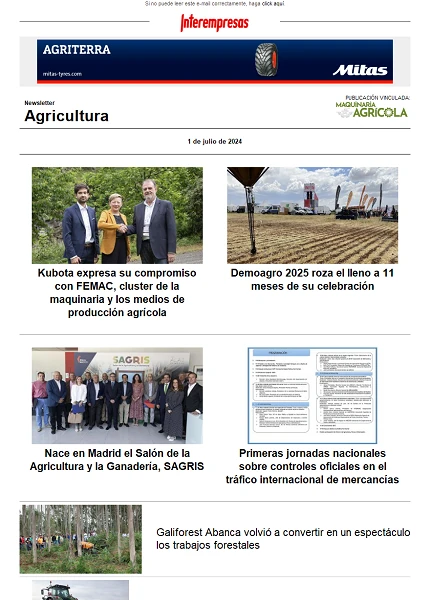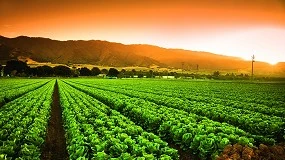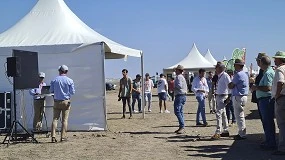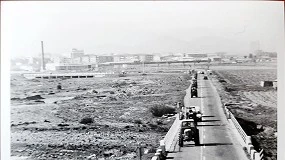New SAP to the field force...
June 28, 2011
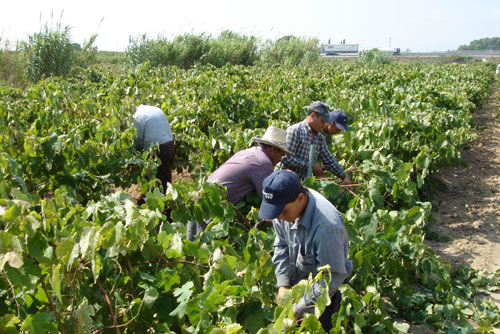
The crisis has led to an increase in manpower in the field, the result of the fall of other economic sectors. Photo: JARC.
In a principle, and leaving carry by the data of the last Survey of Labour supply (EPA), could arrive to the conclusion that the increase of occupation, during the year 2010, has revitalizado the field. According to the EPA, the number of active of the agricultural sector increased in 40.000 workers in the year 2010, until rondar the million of people. In consequence, the agricultural workers –by own and extraneous account– represented 4,1% of the busy population, an increase of two tenth on the year 2009, as it gives off of the report 'agricultural Employment in 2010. The field turns into sector take refuge in front of the economic crisis', of the
From Coag, José Luis Miguel corroborates that this dynamics is due to the economic crisis, an external factor to the own sector. “The field does not cross a good moment from does years. We have observed falls of income as well as difficulties of economic feasibility of a lot of exploitations to continue with the activity. The fact that there are 40.000 people more, according to the EPA, interested in working in the sector –an increase of 11.700 busy more on the statistics of the year 2009– is not significant of an evolution of the primary sector, but to the fault of labour alternatives in other sectors that cross low hours, like the construction, the tourism, etc… This pushes to the people that remain in unemployment to consider the field a sector take refuge”. An opinion that also shares Carme Rosell, responsible of Communication of Joves Agricultors i Ramaders of Catalonia (JARC). “With the data in the hand can say that really the crisis has done of the field a sector take refuge for the economy, although we also have to leave clear that this does not find in his best moment to absorb this hand-held offer of work further of the campaigns of season”, warns.
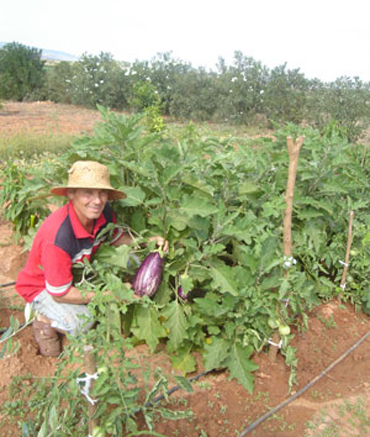
The increase of labour occurs in agrarian, basically horticultural farms that require less investment
The elder or lower degree of occupation, by own or extraneous account, depends on the barriers of entrance that demand a type of exploitation or another. That is to say, the resources and capitalisation/capitalization that require for his set up. In this regard, the technical director of Coag explains the reason: “In general, the increase of busy agricultural produces in those exploitations where results easier to initiate the activity without need of big investments, for this. For example, the plantation of fruits and hortalizas. Besides, they are intensive crops regarding hand of work. By the contrary, the exploitations cerealistas as well as the farms graziers, especially the ones of vacuno of milk, require a lot of capital and can not set up of a day for another. In these cases, have to put on the table near of one million euros, only to start with to work. This is not at hand of people that are in unemployment or cross difficulties by fault of resources”. To do an idea, the spokesman of Coag clears, of graphic form: “In the case that are proprietary of some terrains in Murcia can cultivate hortalizas and obtain a small income to set off for in front. This would not be possible in Castilla, if what pretend is to plant cereals, for the first time, unless some familiar jubile and leave you the exploitation. You have to buy machinery, build ships, look for a suitable terrain… is practically unfeasible and of course, at all profitable. The same sucede in a farm of milk, whose barriers of entrance are very high”.
From JARC, recalca that the hand-held demand of work, although only out of season, has noticed more in the agricultural sector, being upper to the one of previous years. “On the other hand, in the sector grazier –puntualiza Carme Rosell–, from JARC already have reported that this is bearing an important increase of the costs of production, because of the encarecimiento of the destined prime matters to the animal feeding. This factor has contributed to the stagnation of the sector”./p>
In Spain, so alone 4,5% of the producers have less than 35 years, whereas the greater of 65 represent 36,57% of the total of busy. The low percentage of youngsters at the head of agricultural exploitations threat the continuity of the same, although in opinion of the technical director of Coag this tendency could change. “Lately, we have observed a greater influx of youngsters, with difficulties to find other labour exits, to the meetings and courses of training that organise/organize. It calls us a lot the attention this rejuvenecimiento of present public in rooms to which before attended people of 50 years and even above this age”. It treats as of “important qualitative changes”, according to José Luis Miguel, backed by the data of the EPA of the year 2010. “This confirms that it exists a change regarding the aging that gives in the field, although it is a penalty that produce by external factors. In general, the influx of youngsters to the agricultural activity is a good news, although we expect that these can develop his professional activity in the half rural and that do of this profession his half of life. That they can live of her with dignity, surpassing the situations of crisis that drag from does time”.
However, from JARC insist in that the renewal of the field keeps on being “an asignatura pending”. “Little by little they incorporate new effective –recognises/recognizes Carme Rosell– although the critical situation that bear the agriculture and the ganadería do not do very attractive the sector. Like society, until we do not take consciousness that it is a strategic sector, that feeds to million people, will not promote the necessary measures to change the course of the field. And from our organisation/organization, think that this situation has to resolve to the greater possible shortness. They do not suffice the words and statements of our politicians. It has arrived the moment to act”.
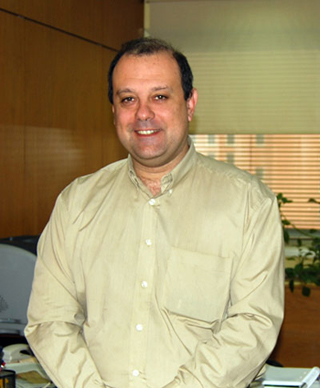
The land occupation soars in communities such as Catalonia and Canary
In absolute terms, as it indicates the report elaborated by Coag, big part of the busy in the primary sector situate in Andalucia (29%), Galicia (11%), Murcia (9%), Castile and Leon (8%) and Catalonia (8%). In other Communities like Castile-La Mancha, Extremadura, Aragon and Valencian Community the percentages vary of the 4 to 7%, of the total of the country. In relative terms, and on an average of the State of 4,3%, in the organisation/organization have classified the diverse Autonomous Communities in three categories: those that have greater agricultural vocation, and where the so much percent of employment in the fishing and the agriculture surpasses the state average, the ones of agricultural vocation average and, finally, those where the percentage of agricultural employment is very underneath of the state average, that is to say, of scarce agricultural vocation. In this regard, from Coag calls the attention on the increase of occupation in some Communities, some like Canaries and Catalonia with percentages of agricultural employment of the 3,6 and 2,1% respectively. “The number of busy in Canaries has grown 27% in a year, in Aragon 21%, in Murcia 19%, in Catalonia 16% and in Andalucia 6%. It is possible, taking into account the zones where more has noticed the increase of occupation, is possible that this have gone to stop to exploitations of fast activation, like the horticultural: intensive in hand of work and that need less main to work”. The reason of this phenomenon, something that corroborate from Coag and JARC, has to look for in the crisis and his effects on other economic sectors, no in agricultural arguments.
From a more qualitative point of view, the primary sector has received more hand of work that titled at the head of an exploitation. “In a lot of cases are speaking of survival, no always treats to restart an agricultural professional activity, understood like professional”, reasons José Luis Miguel. According to the technical manager of Coag, the zone in question is another of the factors to take into account. “In Murcia have detected that a lot of youngsters incorporate to the agriculture, for the first time, in front of the fault of professional exits in the sector of the construction. However, in Andalucia have given cases of people that have remained without employment and have returned to the village where bred , and cultivate olivos. There they work for others or begin to explode familiar plantations”.
The return to the field by part of the busy that work by extraneous account answers manually of immigrant work, with distinct levels of training, as it details Carme Rosell, responsible of communication of JARC. “In fact, they go back to the agricultural sector in front of the fault of perspectives in the construction, and lately in the service sector. The busy that register like headlines, usually are children of professionals of the agriculture or the ganadería that take the reins of the familiar exploitation”.
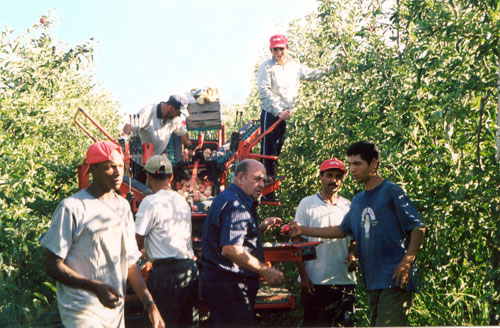
José Manuel Cazorla, beekeeper of 39 years, in the comarca of Alta Ribagorça, Lleida (Catalonia)
Before the few departures professionals which have given rise to a shift of labour from other sectors, there are still cases as José Manuel Cazorla, beekeeper by vocation. For 20 years, Cazorla worked as a ski monitor and two years ago became interested in bee-keeping, something that he does not come from family. "Initially, the idea was to combine skiing with beekeeping classes". It was sufficient to have three or four beehives for their own consumption. Eventually, he saw economic and professional opportunities. "I have the opportunity to turn what started as a hobby in a profession".
"I had to invest more than 100,000 euros in order to control the entire process of production"
Currently operates about 300 hives in a way one hectare in the Alta Ribagorça region, close to la Vall d'Aran, Lleida. Exploitation is "growing" by calculates that this season will pick up 2 tons of honey, although it expected to produce an average of 4 to 10 tonnes, below. "At the moment, I am interested in more to grow the exploitation that take advantage of the hive." "In other words, increasing the volume of the latter". Seen things, this producer is proposed living from beekeeping, devoting less time and effort to ski classes. To this end, he founded Mel Tastet company that sells the honey Cazorla signature. A business that involved an investment of close to 100,000 euros. "You can start with much less, but in my case I had to purchase a vehicle ready to go to the hive, a trailer, tools, and the hive boxes." Also needed a warehouse to maintain the product because if not unattractive me everything. "I suppose that not all beekeepers are starting to work with own packing as I do." A necessary capital if working alone, on their own and want to get the maximum performance. "I take care of my bees, extract them the honey, I've been to the store, there I am in charge of its preparation and thus control the entire process of production." "Only I have to worry about selling it to the shops in the area". Cazorla, in procedures for the health registration to label the honey from your own packing, assures his production "has a great acceptance" among neighbors, as traders the "unique professional beekeeper of l'Alta Ribagorça". To this end, the training is vital. "In October I start a course on bee breeding Queen." He is about to make a natural selection for bee Queens resistant and acclimated to this area, with long, cold winters. "This is a world in which it does not stop and more possibilities see you each time."
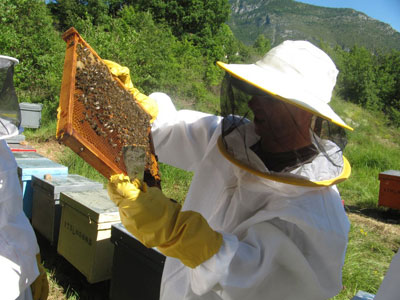
A structural change or something temporary?
Imagine that it changes the current stage, and that in question of months grows the offer of work in the construction, the industry or the services. What sucedería with the agricultural occupation? “I think that if the external factors changed and, suddenly, there was a lot of work in the construction and the hospitality industry would lose occupation. But this panorama now is not realistic, given the current Spanish economy. Perhaps we are in front of a structural change that expect can confirm ”, aim from Coag. “The economic difficulties go to continue –predice José Luis Miguel– even during next year. The problem is that the primary sector is not a solution in front of the fall of other sectors, although it act like shelter to survive in the village, where the familiar expense is lower that in the big cities. It does not treat of a revitalisation/revitalization of the economic activity, unless we can conquer new markets, the productions win weight and the prices repunten... But this is not sucediendo”. In front of similar panorama, from Coag do a call to that the immersion of youngsters in the field was structural and that many of them develop his professional life in the same. Likewise, they warn of a presumable precarización. “It concerns me that we are living one some regression, that is to say, a turn to the agriculture of our grandparents. That they limit to survive in the village, of a less professional form, with exploitations very small and in some very precarious conditions. A precarización fruit of the vision of the field like sector take refuge and moved away of the profesionalización, in a period in which it sues more tecnificación as well as greater dimensions and investments in capital. It upsets me that it go back to backwards, in place to go to forward, in some cases”.
The perspectives neither are very halagüeñas from Joves Agricultors i Ramaders of Catalonia, those who urge to a descent of the cost of the prime matters for like this generate a recovery that facilitate the creation of employment in the sector grazier. “Of not being like this, the creation of employment will be invalid in this field. In the agricultural sector, except possible crisis of alimentary security that minen the confidence of the consumer, augura a possible increase of occupation although this will be always of caracter temporary. Unless they reinforce the structures and problematic that inciden on the feasibility of our exploitations so that modernicen and believe new niches of occupation and employment”.
“The work in the field is very hard, but do not pose me devote me to another thing”
From always, Salvador Sarroca has worked in the field. Beside several members of his family has an exploitation of sweet fruit of 40 hectares in Lleida (Catalonia). It devotes an average of 10-15 daily hours to an occupation that considers “very hard, although I do not pose me devote me to another thing”. In his opinion, set up a horticultural exploitation involves a high capitalisation and the guarantee of some known or familiar. “From the economic point of view, need a lot of resources to start with the activity. And it is that the costs of production do not leave to go up. In these moments, produce is 20% more expensive that the past year. The cost of the water, of the phytosanitary ware products and, of course, the bad climatological conditions that affect us a lot of”.
“If we did numbers would not go out of house”
To weigh that his family collects near of one million kilos of fruit, Sarroca recalca: “Only in phytosanitary ware spend us more than 400 euros to the month. If we did numbers would not go out of house”. Regarding the hand-held transfer of work of other sectors to the field, this gives only in temporary tasks and no qualified. “The majority of the youngsters payeses of by here are those that take the reins of the familiar business because his parents already have abandoned the activity, of the contrary would not do it. Have a mate to the that after doing numbers and produce three million kilos of fruit remained him a monthly wage of 1.000 euros. In my case, no much more of this quantity”. The learning and the be to the day of the last in the sector also is important for those producers that direct an exploitation. “You have to know the new normative, the novelties in machinery and equipment, do courses for youngsters emprendedores… but do not pose me change of sector. The crisis is not in the field. The managers of this situation are the intermediaries that are those that mark the prices of the foods”.
